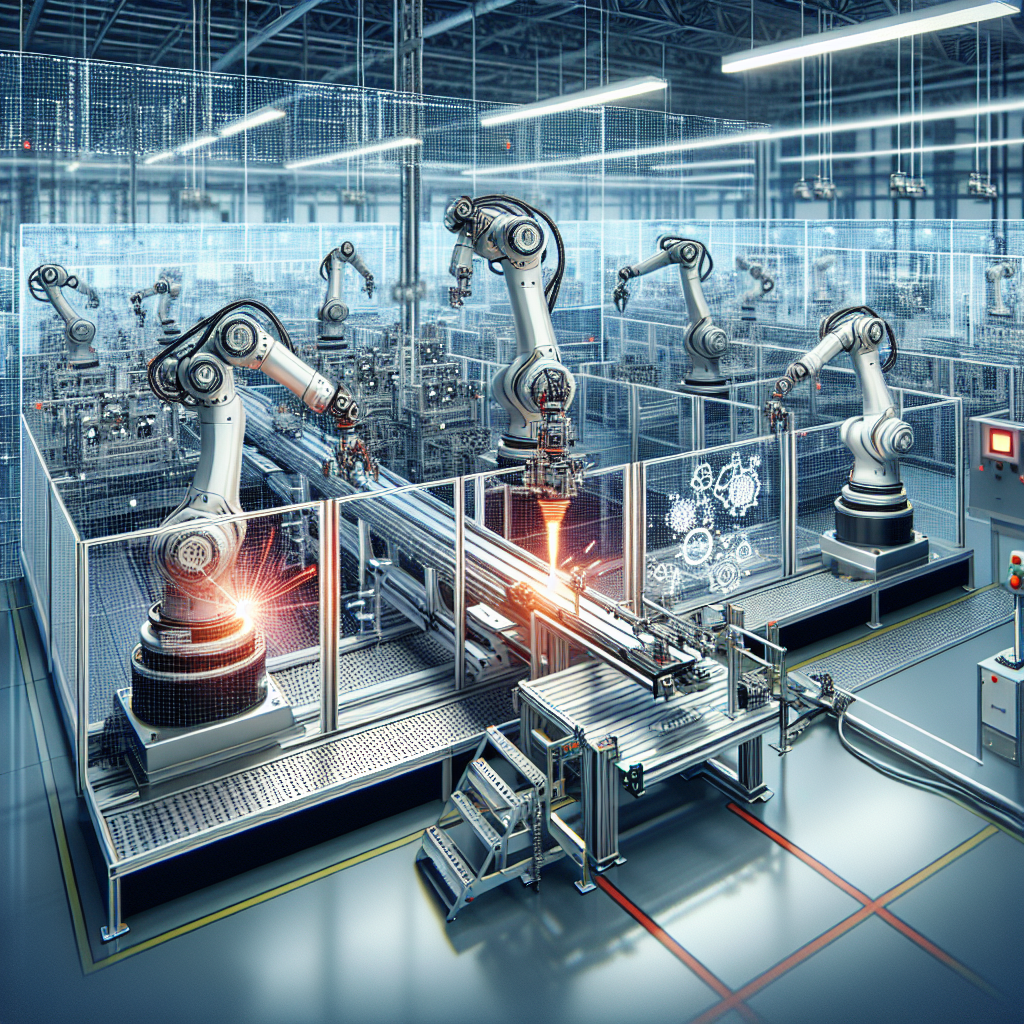The Risks of AI in Manufacturing: Impacts on Production
Artificial intelligence (AI) has been revolutionizing the manufacturing industry in recent years, offering numerous benefits such as increased efficiency, improved productivity, and reduced costs. However, with the rapid advancement of AI technology, there are also risks associated with its implementation in manufacturing. These risks can have significant impacts on production processes, supply chains, and workforce dynamics. In this article, we will explore the potential risks of AI in manufacturing and discuss how companies can mitigate these risks to ensure the successful integration of AI technology in their operations.
Risks of AI in Manufacturing
1. Job Displacement: One of the biggest risks associated with AI in manufacturing is the potential for job displacement. As AI technology becomes more advanced, it has the potential to automate many tasks that were previously performed by human workers. This can lead to job losses and displacement of workers, especially in industries that rely heavily on manual labor.
2. Data Security: Another major risk of AI in manufacturing is data security. AI systems collect and analyze large amounts of data to make informed decisions and optimize production processes. However, this data can be vulnerable to security breaches and cyber attacks, which can have severe consequences for manufacturing companies, including loss of sensitive information, intellectual property theft, and production disruptions.
3. Lack of Transparency: AI systems are often complex and opaque, making it difficult for manufacturers to understand how decisions are being made and identify potential biases or errors in the system. This lack of transparency can lead to mistrust in AI technology and hinder its adoption in manufacturing.
4. Quality Control Issues: AI systems are designed to optimize production processes and improve efficiency, but they can also introduce quality control issues if not properly implemented. For example, AI algorithms may make incorrect decisions or recommendations that result in defective products or production delays. Manufacturers must carefully monitor and validate AI systems to ensure the quality of their products.
5. Regulatory Compliance: As AI technology becomes more pervasive in manufacturing, companies must navigate complex regulatory frameworks to ensure compliance with industry standards and regulations. Failure to comply with regulations can result in legal penalties, fines, and reputational damage for manufacturing companies.
Impacts on Production
The risks of AI in manufacturing can have significant impacts on production processes and supply chains. Here are some of the ways in which AI risks can affect production:
1. Disruption of Workforce Dynamics: Job displacement due to AI automation can disrupt workforce dynamics and lead to employee dissatisfaction and morale issues. Manufacturers must proactively address these concerns by providing training and upskilling opportunities for workers to adapt to the changing demands of AI technology.
2. Increased Downtime: Data security breaches and cyber attacks can result in production downtime and disruptions, leading to lost revenue and decreased productivity. Manufacturers must invest in robust cybersecurity measures to protect their AI systems and data from potential threats.
3. Reduced Productivity: Quality control issues and errors in AI algorithms can result in reduced productivity and efficiency in manufacturing operations. Manufacturers must continuously monitor and optimize their AI systems to ensure optimal performance and minimize production disruptions.
4. Supply Chain Vulnerabilities: AI risks can extend beyond the manufacturing plant and impact the entire supply chain. Data security breaches and quality control issues can compromise the integrity of supply chain processes, leading to delays in production and delivery of goods to customers.
FAQs
Q: How can manufacturers mitigate the risks of AI in manufacturing?
A: Manufacturers can mitigate the risks of AI in manufacturing by implementing robust cybersecurity measures, providing training and upskilling opportunities for workers, and continuously monitoring and optimizing AI systems to ensure optimal performance.
Q: What are some best practices for ensuring data security in AI systems?
A: Some best practices for ensuring data security in AI systems include encrypting sensitive data, implementing access controls and authentication mechanisms, regularly updating security patches, and conducting regular security audits and assessments.
Q: How can manufacturers address job displacement due to AI automation?
A: Manufacturers can address job displacement due to AI automation by providing training and upskilling opportunities for workers to adapt to the changing demands of AI technology. Companies can also consider redeploying displaced workers to other roles within the organization or offering transition support and career counseling services.
Q: How can manufacturers ensure regulatory compliance when implementing AI technology?
A: Manufacturers can ensure regulatory compliance when implementing AI technology by conducting thorough assessments of regulatory requirements and industry standards, establishing clear policies and procedures for AI implementation, and regularly monitoring and reporting on compliance metrics.
In conclusion, the risks of AI in manufacturing are real and can have significant impacts on production processes, supply chains, and workforce dynamics. However, by proactively addressing these risks and implementing best practices for mitigating them, manufacturers can successfully integrate AI technology into their operations and realize the benefits of increased efficiency, improved productivity, and reduced costs.

